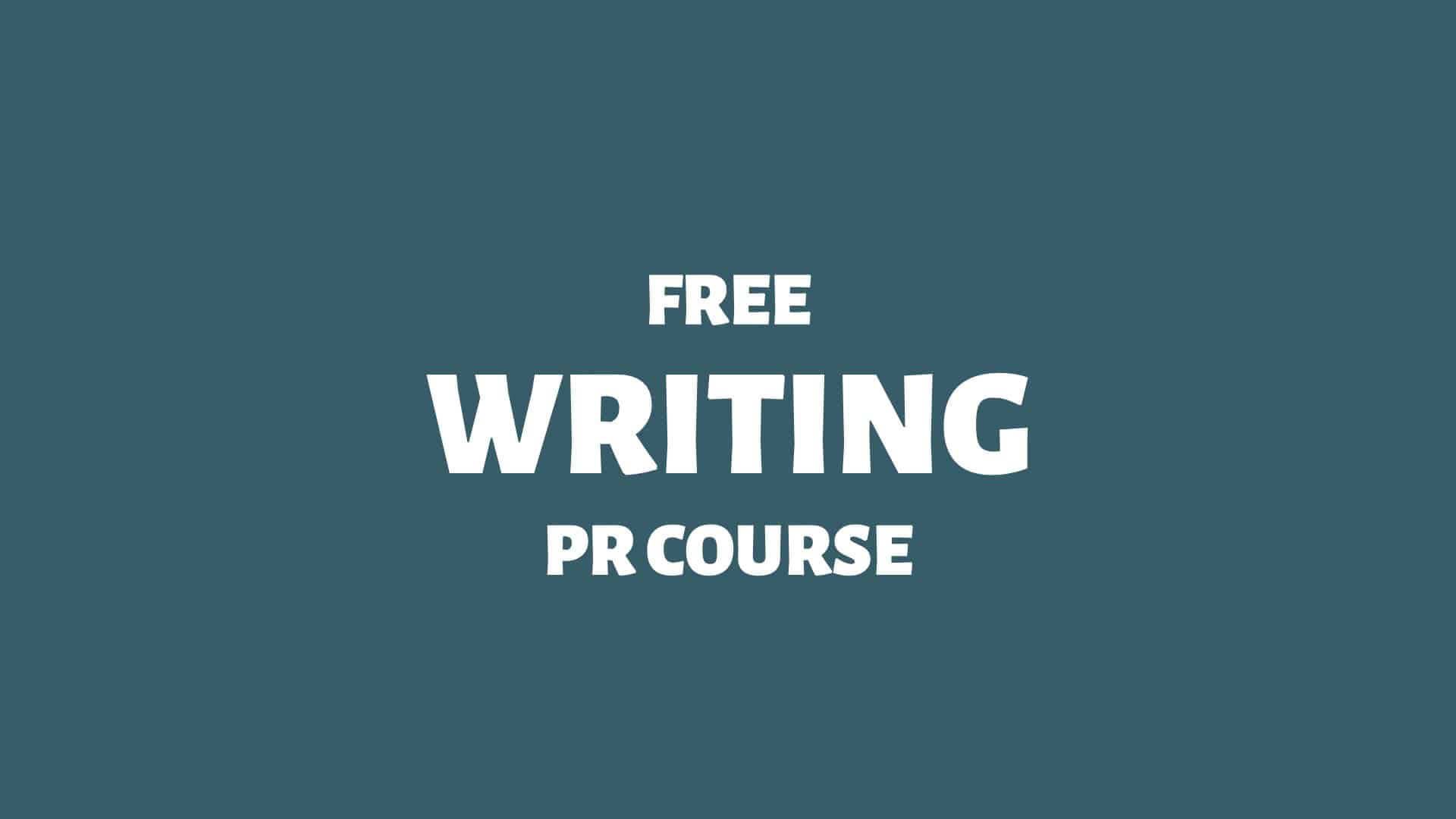In PR, what’s the Stoic tonality?
When I help companies reply to social activists, I often recommend using the Stoic tonality.
Different organisations have different policies, but swiftness is often paramount in engaging successfully in online channels. Waiting for various instances to approve every reply is not productive.
The Stoic tonality aims to provide community managers with guiding principles to ensure their writing does not get them into trouble.
Here we go:
The Stoic Tonality
An organisation is the polyphonic sum of all its coworkers. Imagine extracting each coworker’s most virtuous and mature traits and combining them into one voice — the Stoic tonality.
Stoic Tonality Examples
“Why doesn’t your brand speak out against industrial overfishing killing our oceans?”
“As a company that sells fishing gear, we want our oceans — and all animals and plants living in them! — to be healthy and plentiful. We, too, were disturbed by the recent news of overfishing. How could anyone not be? We now ask ourselves, how can our company make more of a difference? Honestly, we’re discussing our strategy for sustainability every day. I cannot say how or when we might take specific action regarding this latest news, but rest assured that we’re taking the general issue of saving our oceans seriously.”
“Why doesn’t your brand engage in Black Lives Matter?”
“As for right now, we’re listening. We’re listening to the stories being told. We’re listening to understand better how we can learn and grow as a company. As for inclusiveness and human rights in general, we think we’re doing a great job, and part of that is to stay open and carefully listen to people’s stories. We might take specific actions, but we’re listening and learning.”
“Why doesn’t your brand join our protests against toxic masculinity and the patriarchy?”
“Honestly, we’re a product company. We make products for anyone who likes them. And I dare say that we’re experts in making these products. However, we’re not experts on ideologies or societal structures. So, for now, we listen. And we continue to focus on making the best products that we can. For everyone. We believe that’s our best way of contributing at this point.”
“Why doesn’t your brand sign our petition to boycott all companies on our Environmental Black List?”
“As a company, we operate differently. Instead of signing petitions or participating in other public demonstrations, we take action within our sphere of influence. And I dare say that our many environmental initiatives are making a lot of difference worldwide relative to our size and reach. If we were to sign your petition, we would first have to use our resources to research the legitimacy of its creators and then make sure that none of the companies on that list is being wrongfully accused. While it would be possible, we’ve decided that we can do more good by directing our resources to where we can make the most difference.”
“Why doesn’t your company act against your female employees who take time off for abortions?”
“All our employees are grown-ups, and what they do on their own time is frankly none of our business. We’re a large company, and we have employees who are pro-life and pro-choice. We believe we have a workplace where people can have different opinions but still respect each other and work well together.”
“Why hasn’t your company offered your thoughts and prayers for the victims and their families of the school shooting?”
“The victims and their families have our empathies, of course. I speak for everyone working at our company when I say we were devastated by the news as everyone else. But you’re right that we haven’t posted any status updates about the shooting on our Facebook page. It’s not that we don’t care (we do!), it’s just that we focus our updates on our products and services and how they make a positive difference in the world.”
Learn more: The Stoic Tonality
Stoic Philosophy for Public Relations
I’m inspired by Stoicism — and intrigued by the idea of translating classical Stoic virtues (wisdom, courage, justice, temperance) and applying them to public relations:
The Wisdom Pitch
“A Stoic is someone who transforms fear into prudence, pain into transformation, mistakes into initiation, and desires into undertaking.”
— Nassim Nicholas Taleb
Tell PR stories of how organisations can be wise and overcome obstacles that have stopped others in their tracks. Convey PR messages on how to apply wisdom, knowledge, and experience.
The Courage Pitch
“We cannot choose our circumstances, but we can always choose how we respond to them.”
— Epictetus
Tell PR stories of brands that never back down in the face of hardships that would destroy other organisations. Convey PR messages of how an organisation can be righteous even when storms are raging.
The Justice Pitch
“Concentrate every minute on doing what’s in front of you with precise and genuine seriousness, tenderly, willingly, with justice.”
— Marcus Aurelius
Tell PR stories of how organisations relentlessly can strive for honesty and transparency — even when uncomfortable. Convey PR messages about how all brands, without exception, can rid themselves of dishonesty and incompetence.
The Temperance Pitch
“It’s not the man who has too little, but the man who craves more, who is poor.”
— Seneca
Tell PR stories of organisations that strive for higher values in a world where all other organisations suffer shortsightedness. Convey PR messages of organisations prepared to abstain from short-term gains to make the world better for all.
Learn more: Stoic Philosophy for PR Professionals
Frequently Asked Questions
The Stoic tonality could work for us, but our community managers cannot write like this.
Train your community managers.
Or fire them — and hire better.
A community manager should be able to emulate a tonality and find the right words. Sounding like a human while respecting corporate realities is challenging, but it should be their core competency.
Read also: A Community Manager’s Job Description
We don’t have the resources to write these kinds of replies on our social media accounts.
Revise your social media strategy if your organisation cannot set aside proper resources to run a specific social media account.
Social media isn’t free of charge.
These kinds of statements would only spark even more difficult replies for our organisation.
There’s often an irony here. Most organisations complain that their CSR activities are not given enough credit or attention.
But here, we have situations where people actively ask about your CSR strategy. Whenever someone asks you a question, they give you a reason to speak.
Don’t take such opportunities for granted.
Our experience is that it’s never a good idea to “feed the trolls.”
You should have some form of publicly accessible comment policy for all your social media accounts.
A troll, by definition, is someone who deliberately violates your comment policy.
Your comment policy should always specify how you deal with comments that violate that policy.
Will there be a warning first? Temporary suspension? Removing the comment? Blocking or banning of users?
There’s no one-size-fits-all, and you must continuously develop a comment policy that fits your social media strategy.
If the commenter is not violating your comment policy and you still don’t want to “feed” them out of fear of what will happen next, your social media strategy must be revised.
Read also: How To Deal With Online Trolls
The Stoic tonality might work elsewhere, but not in our industry.
So, if I point to another organisation in your industry that successfully responds with maturity, integrity, and decency, you’re still not convinced it could be done for your organisation. Huh.
I would recommend measuring your communication maturity.
Our organisation and digital footprint are too big to respond in this way.
To “speak human” as an organisation is becoming increasingly challenging with size.
There are, however, workarounds.
One approach primarily responds to top comments (comments with many likes or upvotes). If this is specified in the comment policy, that’s a fair approach.
One approach is to publish your response to a specific question or a particular type of question once and then reply with a link to that published statement.
One approach is, indeed, not to respond. But you must clarify this and link to a platform where your organisation will be responsive.
Remember, if one of your comment sections spins out of control, and you’re not there to respond and moderate actively, you cannot blame the online community.
Alphabet, Meta, Apple, Amazon, Microsoft etc. I know many successful organisations that seldom respond on social media.
If you’re not responsive, you must divert more resources to your social listening strategy. Organisations that can actively listen, crunch the data, and take action can get away with not being responsive.
Also, it would be wise to remember that the companies mentioned above have serious PR challenges, so “successful” is a relative term.

THANKS FOR READING.
Need PR help? Hire me here.

What should you study next?
Spin Academy | Online PR Courses

Spin’s PR School: Free Writing PR Course
Discover the power of effective PR writing with this free Writing PR Course. Find tips and inspiration. Boost your skills and boost your career prospects today.
Public Relations Writing
PR Writing Inspiration
Learn more: All Free PR Courses
💡 Subscribe and get a free ebook on how to get better PR.



